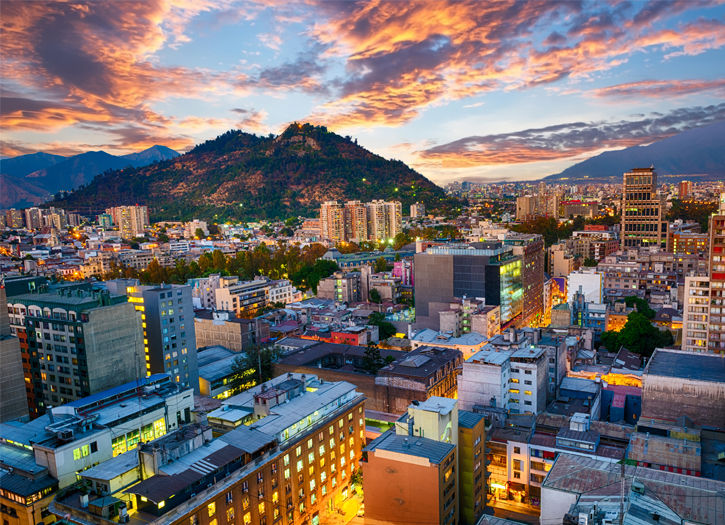The COVID-19 pandemic in Chile is part of the worldwide pandemic of coronavirus disease 2019 (COVID-19) caused by severe acute respiratory syndrome coronavirus 2 (SARS-CoV-2). The virus was confirmed to have reached Chile in March 2020. While initial cases had been imported from South East Asia and Europe.
The cases have concentrated in the Santiago metropolitan area, with outbreaks in other regions in the country. No national lockdown was established in Chile, unlike in neighbouring Argentina and Peru, although a night curfew was implemented throughout the country. Quarantines were established locally in different cities and neighborhoods.
As of 10 August 2020, Chile has the fourth largest number of cases in South America, after Brazil, Peru, and Colombia, and the ninth largest in the world. Considering its population, Chile has one of the worst outbreaks in the world, with more than 19,000 cases and 710 deaths per million inhabitants. By June 2020, the government confirmed thousands of additional deaths due to COVID-19, including suspected cases where PCR tests were not available. By July 2020, the number of deceased surpassed 10,000 people.
Partial lockdowns and quarantines were established in the first months, hitting the economy of the country. By April 2020, unemployment had reached 9%, a record-high level in the past 10 years, while the economy had shrunk by 14.1%.A new wave politically motivated protests sparked in late May, mainly in Santiago, due to food shortages in certain sectors of the population.
The Ministry of Health implemented new criteria to consider a death as related or due to COVID-19. The number of deaths the day before reaches new maximum of 87 cases and a third of them (33) were incorporated due to the new criteria. A report released by CIPER Chile informed the Stastistics Department of the Ministry of Health reported more than 5,000 deaths related to COVID-19 to the World Health Organization, a smaller number than the number available in the public reports. Undersecretary Paula Daza confirmed there was a parallel count including suspected cases but it was not available in a daily basis and was not official. Minister Jaime Mañalich resigns and is replaced by Enrique Paris.
The total deaths due to COVID-19 (including confirmed and suspected) surpassed the 10,000 cases according to the weekly DEIS report. The Ministry of Health changed the criteria for counting deaths due to COVID in their daily report. Since that day, it will use only the data of confirmed deaths with positive PCR tests according to the DEIS report, replacing the former criteria based on the Civil Registry. The change includes 1,057 additional deaths. However, suspected deaths without available PCR testing will continue being released weekly.
President Sebastián Piñera announced a ban on public events with more than 500 people, as the government tries to control the spread of coronavirus even as massive social demonstrations are planned in March and April months. Nearly 1,300 passengers on two cruises in Chile have been quarantined after an 83-year-old British national tested positive for coronavirus. Caleta Tortel, a small coastal village that had been visited by the aforementioned tourist was subsequently placed under a 14-day quarantine.
President Piñera announced the closure of the borders for 14 days. He said “We have decided to close all land, sea and area borders of our country for the transit of foreign people. This will not affect the entry and exit of cargo or carriers, to continue guaranteeing a normal supply of our country. This measure will take effect from 18 March 2020. Chilean nationals and permanent residents in Chile, who come from high-risk places, may enter our country undergoing Sanitary Customs and a mandatory 14-day quarantine.
On 2 March 2020, The CRU World Copper Conference in Santiago, the largest annual gathering of copper miners in the world, which was scheduled between 23 and 27 March 2020, was cancelled due to concerns over travel risks associated with the coronavirus pandemic.The Chilean government initially stated that the 26 April National Plebiscite would be held under sanitary safeguard measures. However, on 19 March 2020, Chilean lawmakers reached an agreement to postpone the referendum on a new constitution until late October as safety concerns around the coronavirus pandemic take precedence over politics.







Add Comment